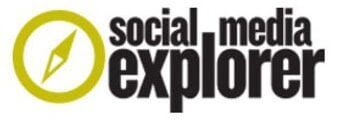Are you trying to get hired? Many young professionals today, especially Millennials and older members of Gen Z, have really struggled to get a foot in the door when it comes to stable employment, despite often being overqualified for the roles they’re applying for – and, simultaneously, roles with extensive responsibilities and requirements have come to be labeled “entry level,” and come with equivalently low pay. Often, professionals need a master’s degree just to get an interview for a basic office job.
There are clearly a number of problems at play in this situation, many of which can’t be solved by individuals, but that’s not much of a comfort if you’re looking for a role you’ll actually want to stick with for more than a year or two.
So, while you’re stuck with current economic conditions, one thing you can do to boost your odds of getting hired is to develop high-value skills, and do so without going back to school and taking on tens of thousands more in student debt.
Soft Skill: Sales
While a lot of traditional, local sales jobs – think, the neighborhood insurance broker or even old-school door-to-door sales – have gone the way of the dodo, sales is still the heart of every business. If you’re not closing sales, you’re not turning a profit.
Look for opportunities to learn more about how to develop leads and close sales and includes those skills on your resume. Even though there are a lot of true entry-level jobs that can help hone this skill, many white-collar managers will weigh this kind of sales training more heavily than someone who learned to close a sale while working at Home Depot.
Identity: Find Your Niche
Older generations may mock the millennial and Gen Z impulse to create a personal brand, but realistically, this is just part of living in the social media age, and you may as well use it to your advantage.
Find a niche where you can build a more extensive skillset, start a blog, and identify yourself with a particular specialization. In the past, professionals built this kind of identity on the basis of the roles they were assigned or projects they handled, but as you can learn more about here, this kind of independent personal branding can actually help you tackle both traditional job interviews and entrepreneurship. Your personal brand is the launchpad for whatever type of life you want to build.
Hard Skills: Tech Expertise
Among the most in-demand hard skills in businesses today are those under the tech heading, and we don’t just mean being better at using GSuite and Slack than older coworkers. No, companies are desperately in need of professionals who know their way around mobile app development, audio and video production, and artificial intelligence. Cybersecurity has also been struggling with a sizable skills gap, and professionals with these competencies can essentially write their own ticket.
Mindset: Flexibility And Freedom
While you may not be able to put these on your resume, if you’re going to thrive, or at least survive, the current job market, you’re going to need to stay flexible and be okay with being your own boss, even when you don’t want to.
This is one of the major pressures of contemporary work: as popular as entrepreneurship is among a subset of young professionals, there are a lot of millennials who don’t want to be their own bosses. They know what happens when your whole life is devoted to the hustle, and they don’t want it.
Accepting work as a contractor, freelancer, or even temporary entrepreneur may be the cost of building your professional brand and a resume that attracts employers. And, until then, stay focused and ignore all of the advice you’ll surely receive that fails to reflect the current job market.
It may be meant helpfully, but the times have changed, and it’s important that your professional development efforts reflect that. Knowing how to create a perfect resume is more important than ever for the online job seeker.
SME Paid Under

